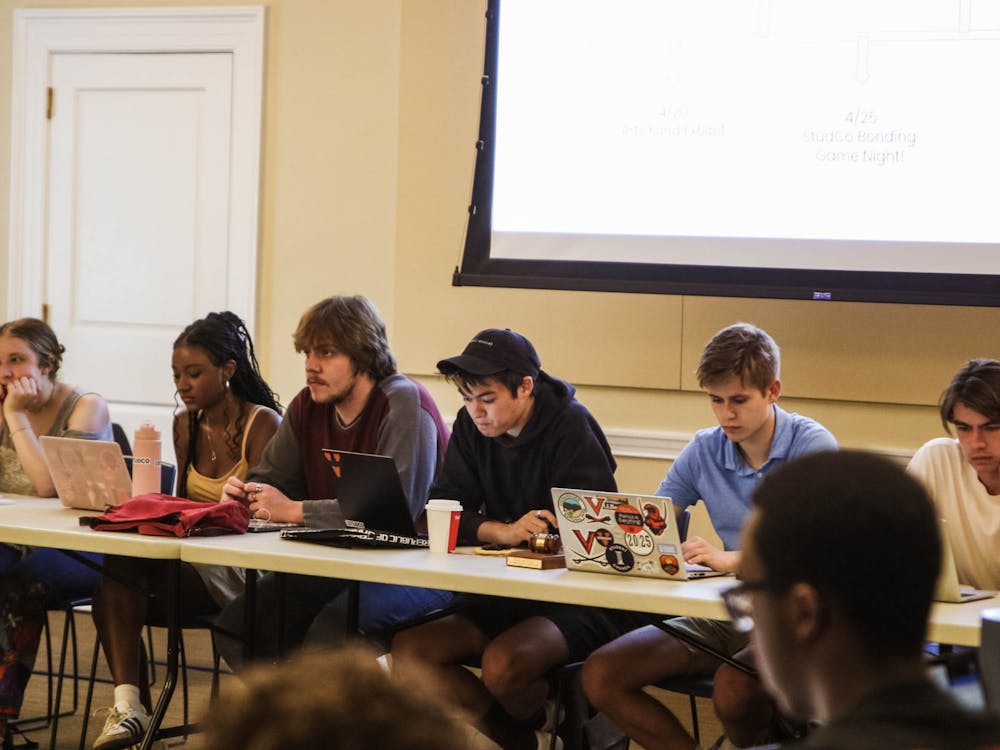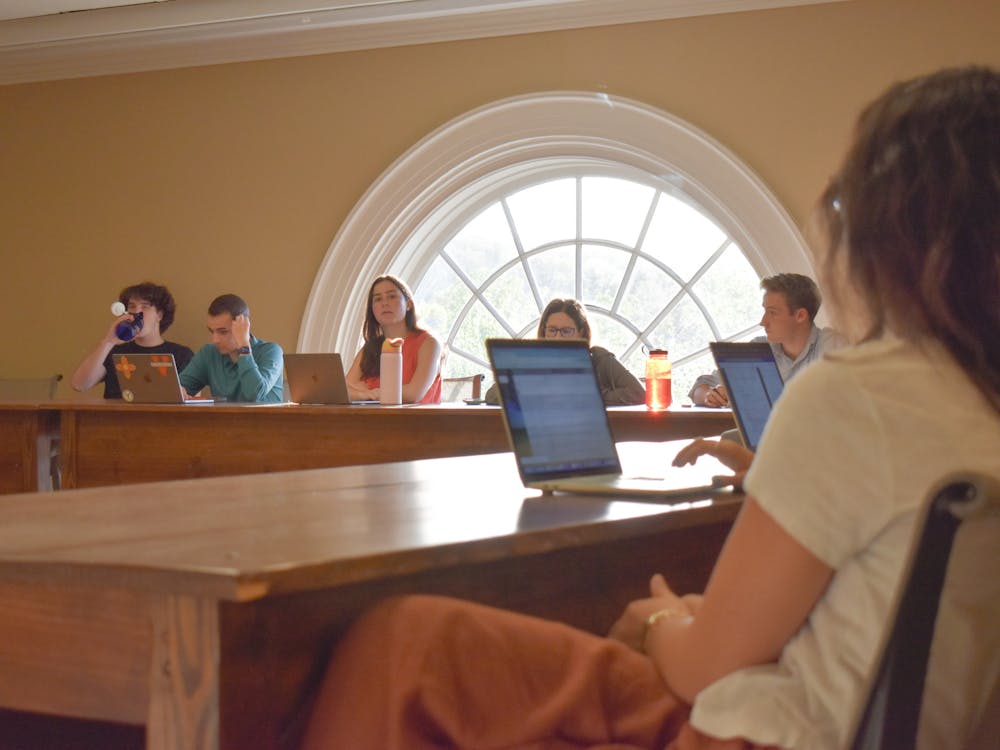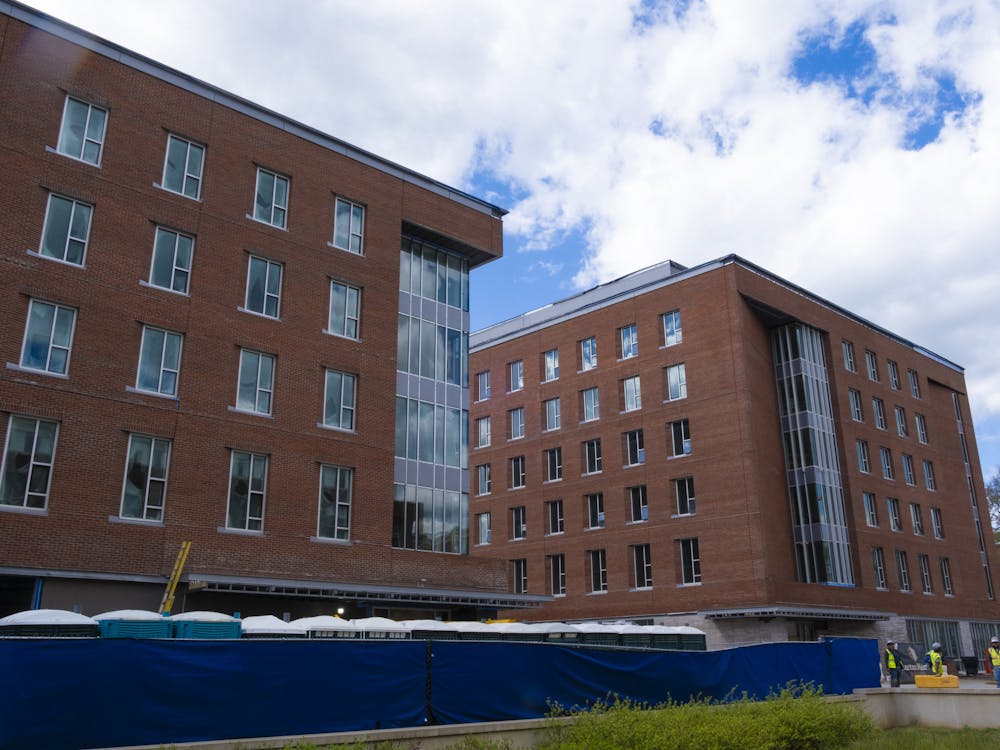Over the last four years, issues such as greater autonomy for higher education, sexual assault and diversity on Grounds have been the top issues facing University students.
Higher Education Restructuring
After two years of debating issues surrounding the restructuring of Virginia public institutions of higher education, the General Assembly passed legislation April 6 which officially outlines the path toward more autonomy for schools in the Commonwealth, including the University.
The recently passed legislation marks a move toward more independence for the University, which has maintained its status as a public institution since its founding.
"We always intended to remain a public university true to Jefferson's initial mission for this University," University Spokesperson Carol Wood said. "We would have never walked away from our core mission as a public institution."
The push for autonomy in recent years has come in response to dwindling funding from the Commonwealth to Virginia public colleges and universities.
"If you look at the more recent history and the relationship between the state and higher education, the state has been faced with numerous budget priorities and higher education began to take a back seat to some other initiatives in the state," Wood said. "There has been a steady decline in funding to the University's budget and it became clear that this was not a trend that was going to turn around."
According to Wood, the major push for higher education restructuring in Virginia started two years ago.
"This wasn't on the radar screen four years ago," Wood said.
However, since the push for autonomy began, the legislation itself has changed.
"The name didn't reflect what we were trying to achieve," Wood said of the legislation, originally known as the Charter. "People were confusing it with other charter schools around the state and nation."
Other changes to the legislation include the creation of three levels autonomy available to Virginia public colleges and universities.
"During the process last year, the scope of what we were trying to do was broadened to include all of the public institutions of higher education in Virginia, including the community college system," Wood said. "The three levels of autonomy benefit all Virginia public schools."
Changes in the legislation have also changed the role of the Board of Visitors as well, said Alex Stolar, Student Council Legislative Affairs chair.
"The new version of the legislation increases the authority," he said. "More importantly, that goes hand in hand with an increase in their accountability, which is ultimately good for students."
The support which the higher education restructuring legislation received from members of both parties in the General Assembly and from the governor has encouraged students to support the legislation, too, Stolar said.
"I think that students have come to realize that this is going to be very positive for higher education in Virginia," Stolar said.
Sexual Assault
While a "community of trust" lies at the foundation of the University's identity, the issue of sexual assault at the University has begun to challenge the reality of that trust.
In the Fall of 2004, former University student Annie Hylton told her story of being sexually assaulted by a fellow University student in the Charlottesville weekly newspaper, The Hook, and earlier this spring former University student Kathryn Russell shared her story with The Cavalier Daily.
According to the University's Sexual Assault Coordinator Claire Kaplan, student willingness to step forward marks a positive change in the issue of sexual assault and is indicative of a high level of student activism.
"The biggest change [concerning sexual assault at the University in recent years] has been the level and degree of involvement on the part of students and activism on these issues," Kaplan said. "To me that has been very exciting."
Additionally, student activism surrounding sexual assault played a role in the revision of the University's sexual assault policies and procedures this year, a process which occurs every three to five years, according to Shamim Sisson, Sexual Assault Board chair.
In 1999, revisions to the University's sexual assault procedures included a split of the Sexual Assault Board and the Judicial Review Board. Another revision to procedures in 2002 added structured meetings to sexual assault hearings, the informal resolution option and support to students who are declined prosecution by the Commonwealth Attorney.
The most recent revision, adopted this spring, included the addition of sexual misconduct and affirmative consent within the language of the University's sexual assault procedures and allows for a professionally conducted investigation in order to allow more strategic questioning by the SAB.
"2004 and 2005 saw an unprecedented level of student interest and involvement in procedural revisions," Sisson said. "The exciting aspect of that is the resulting procedures are markedly influenced by student input."
Hylton's and Russell's stories played an important role in calling an exceptional amount of attention to the issue of sexual assault at the University.
"It takes a public event of some nature to get students angry and excited and educated about an issue," Kaplan said. "That's just how things are. This was the year for activism on this issue."
While the University has experienced a positive change in recent years in terms of raised awareness, sexual assault itself remains a problem within the University community.According to Kaplan, the number of sexual assaults committed within the University community has not changed in recent years.
Diversity
The University has come a long way from its days of an all white male student body. The past recent years in particular have marked a time during which the University has made a concerted effort to increase diversity on Grounds and create conditions in which diversity can prosper.
Despite University efforts, however, several racially motivated incidents that have occurred in the past four years indicate that there is much left to be done in terms of establishing and maintaining diversity on Grounds.
"I'm really disturbed about the climate," said African-American Affairs Dean M. Rick Turner. "I'm concerned because of the rash of racial harassment and abuse issues."
Among the racial incidents that have occurred at the University recently are the assault of former Student Council presidential candidate Daisy Lundy on Feb. 26, 2003 and the vandalism --- which included the use of a racial epithet --- of fourth-year College student Amey Adkin's car Sept. 8, 2004.
In part these incidents have helped to motivate further change and diversity efforts at the University, including the President John T. Casteen, III's Commission on Diversity and Equity formed in Spring 2003.
"These incidents are primary reasons for the President's Commission," Turner said. "The climate stemming from what happened to Daisy Lundy and Amey Adkins was a primary reason to convene a task force."
Despite the unfortunate events of racial harassment, the incidents have brought a great deal of attention to diversity issues at the University.
"I think the change that has been of most importance is more awareness and acknowledgement," Amey Adkins said. "U.Va. is a great and wonderful place, but we have issues."
One of the major changes resulting from the awareness surrounding the racial incidents and the President's Commission have been efforts to create an incident report system, Turner said.
"Students will know where to go if they are the victims of racial harassment," Turner said.
While the University is making progress in terms of its response to incidents of racial harassment and bias, the fact remains that the incidents are occurring in the first place.
"[Incidents] have become more common," Turner said. "There are a lot of unreported incidents, too.Students don't want to report something that has happened to them because they don't want their name in The Cavalier Daily and they don't want their parents to know.They shrug it off."
The major change surrounding issues of diversity at the University will require continued cooperation between the student body and the University's administration, Adkins said.
"I think that we have come along way in the past four years and the University and the students have responded to these issues," she said. "Especially with student self-governance, it's important for students to take a stand, but we also need our leaders --- the University administration --- to be clear about these issues."




